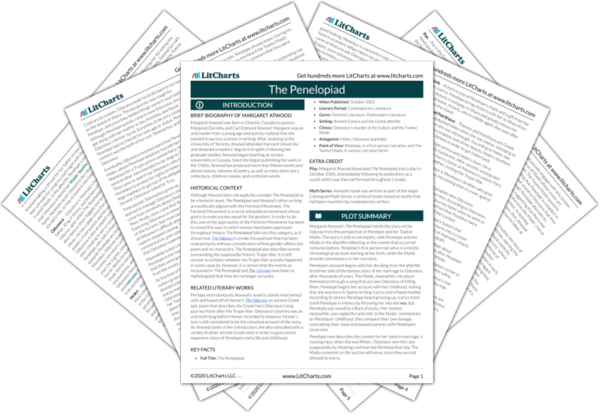The Suitors Quotes in The Penelopiad
Chapter 15 Quotes
It was not unusual for the guests in a large household or palace to sleep with the maids. To provide a lively night’s entertainment was considered part of a good host’s hospitality, and such a host would magnanimously offer his guests their pick of the girls—but it was most irregular for the servants to be used in this way without the permission of the master of the house. Such an act amounted to thievery.
Chapter 19 Quotes
I then related a dream of mine. It concerned my flock of lovely white geese, geese of which I was very fond. I dreamt that they were happily pecking around the yard when a huge eagle with a crooked beak swooped down and killed them all, whereupon I wept and wept.
Chapter 20 Quotes
The more outrageous versions have it that I slept with all of the Suitors, one after another—over a hundred of them—and then gave birth to the Great God Pan. Who could believe such a monstrous tale? Some songs aren’t worth the breath expended on them.
Chapter 21 Quotes
Let us just say: There is another story.
Or several, as befits the goddess Rumour…
Word has it that Penelope the Prissy
Was—when it came to sex— no shrinking sissy!
Some said…that each and every brisk contender
By turns did have the fortune to upend her,
By which promiscuous acts the goat-god Pan
Was then conceived, or so the fable ran.
The truth, dear auditors, is seldom certain—
But let us take a peek behind the curtain!












